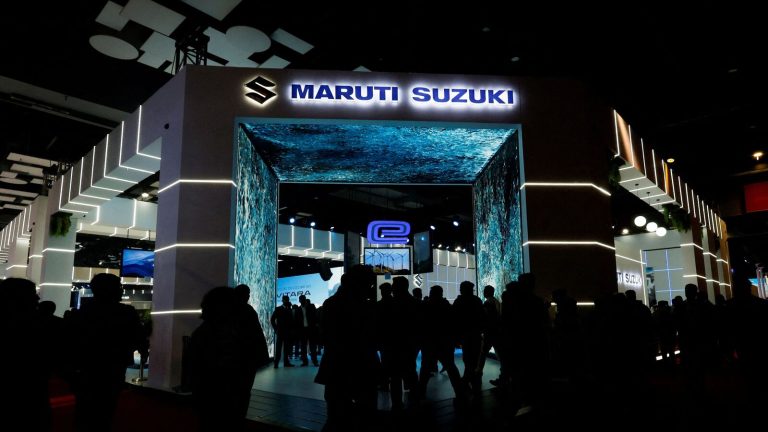This additional sale helped Maruti clock nearly 3% growth in the fiscal, selling 1.9 million passenger vehicles (PVs, comprising cars and SUVs). That handsomely beat the 2% industry growth of PVs in FY25. To be sure, Maruti’s FY25 sales to Toyota saw an 82% jump from 58,612 units in the preceding fiscal year.
Under an agreement signed in 2019, four car models developed and manufactured by Maruti Suzuki India Ltd, which has 41% share of the four-wheeler market in India, are also sold with the Toyota badge. In turn, Maruti got the right to use the hybrid vehicle platform developed by Toyota under this partnership, and could also rebadge Toyota’s Innova to a Maruti name (Invictus).
6% overall
Maruti’s sales to Toyota started in the financial year 2019-20 and have grown to about 6% of the company’s overall sales, a strong growth as per analysts.
“The incremental sales to Toyota helped act as a good buffer for growth for the company (Maruti),” said Mumuksh Mandlesha, equity research analyst at Anand Rathi Shares and Stock Brokers Ltd. “The arrangement has worked well for the two companies. Maruti has got access to technology and the network of Toyota, while Toyota saved the cost of developing these vehicles on their own and increased the product portfolio in the compact segment.”
Queries sent to Maruti Suzuki and Toyota remained unanswered till press time.
In car rebadging partnerships, the original model developed by a manufacturer is sold to another company, which then uses its own brand logo on the vehicle and sells it in the market. There have been several examples of such partnerships in the past, such as Renault-Nissan, Renault-Mahindra and Skoda-Volkswagen, among others.
Such rebadging has generally not worked in the Indian market, but in this case Toyota’s perceived aspirational brand value has worked in both companies’ favour, according to experts.
“Toyota’s brand value is quite strong in many pockets of India,” said Amit Kaushik, managing director at auto analytics firm Urban Science. “Many consumers see it as an aspirational brand, which is why the rebadged Maruti models worked well for the company.”
A big draw in the rebadged basket was the Toyota Urban Cruiser Taisor, which is based on Maruti Suzuki’s Fronx and was launched in April 2024. As per available industry wholesale data, about 30,000 units of the vehicle were sold by Toyota during the year, which acted as a boost to the numbers of Maruti Suzuki. To be sure, the original product, Fronx, sold 166,000 units in FY25 from the Maruti stable, according to industry estimates.
Sales surge
Due to the increased traction from the rebadged vehicles, Toyota sales have also seen a surge. From 109,000 unit sales in the financial year 2019-20, its sales grew to 275,000 units in the financial year 2025. In FY25, the company, which has 7% share of India’s car market, grew by nearly 30% compared to FY24, compared to industry growth of 2%. As per available estimates, Maruti-rebadged cars made up about 40% of Toyota’s overall sales in the country.
Maruti has remained bullish about the arrangement with Toyota.
“This is something that we have to play by the ear and keep watching the volumes,” Rahul Bharti, executive director at Maruti Suzuki Ltd, said while answering an analyst’s question on the company’s sales to Toyota post Q1 results of FY25.
“Future products or co-badging, etc., we will announce when it comes to it,” he added. “But the good part is it is incremental sales for us. Nothing better than using another channel to increase your sales.”
However, analysts remain sceptical about the sustenance of this growth. “A big part of the growth came from the launch of Taisor,” said Mrunmayee Jogalekar, auto research analyst at Asit C Mehta Investment Intermediates Ltd. “A jump like this isn’t expected soon but sharing of more models will be watched out for.”
Maruti Suzuki’s share price has surged by 8.5% in fiscal year 2024-25, against a 0.5% fall in Nifty Auto.


